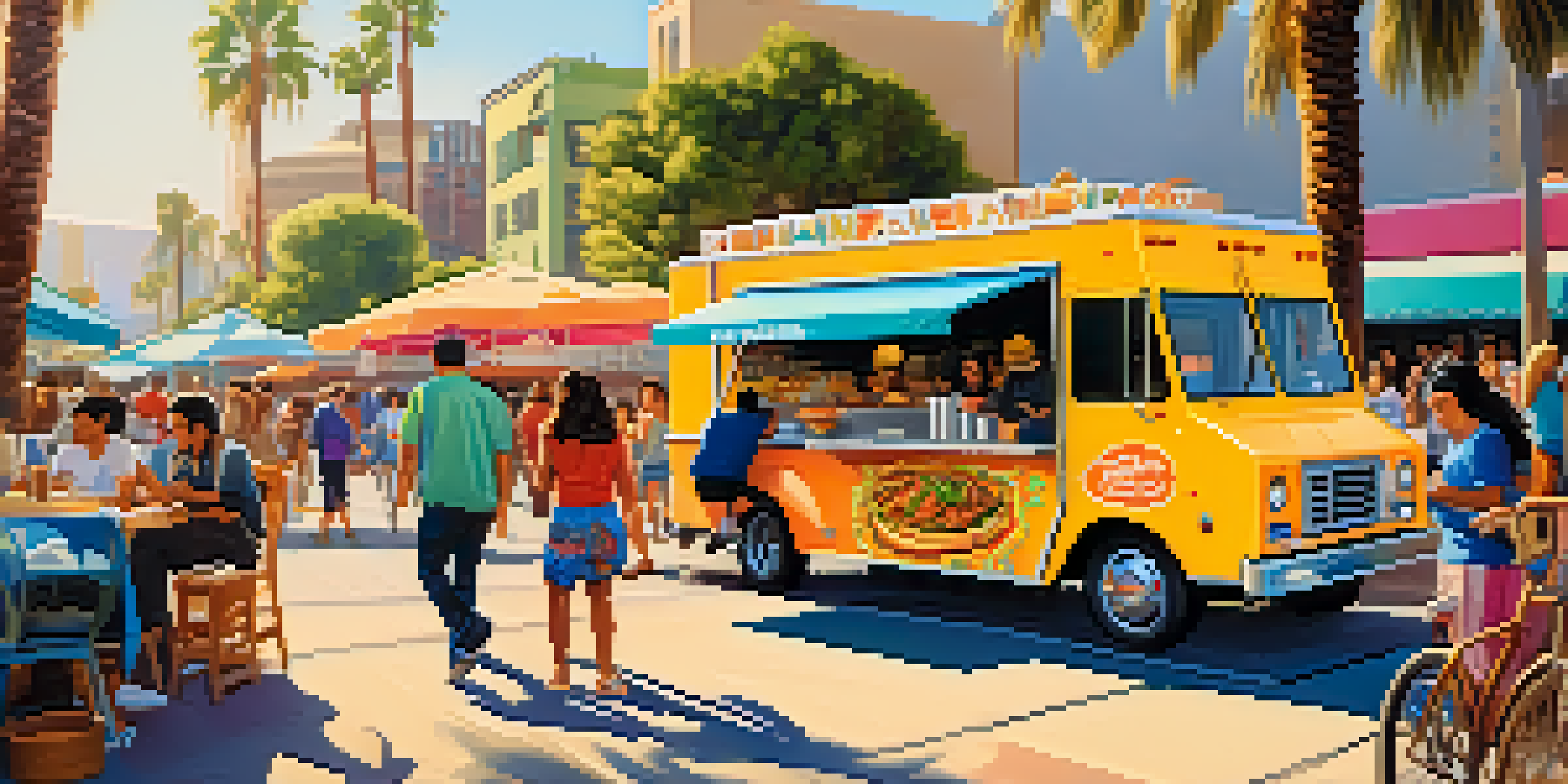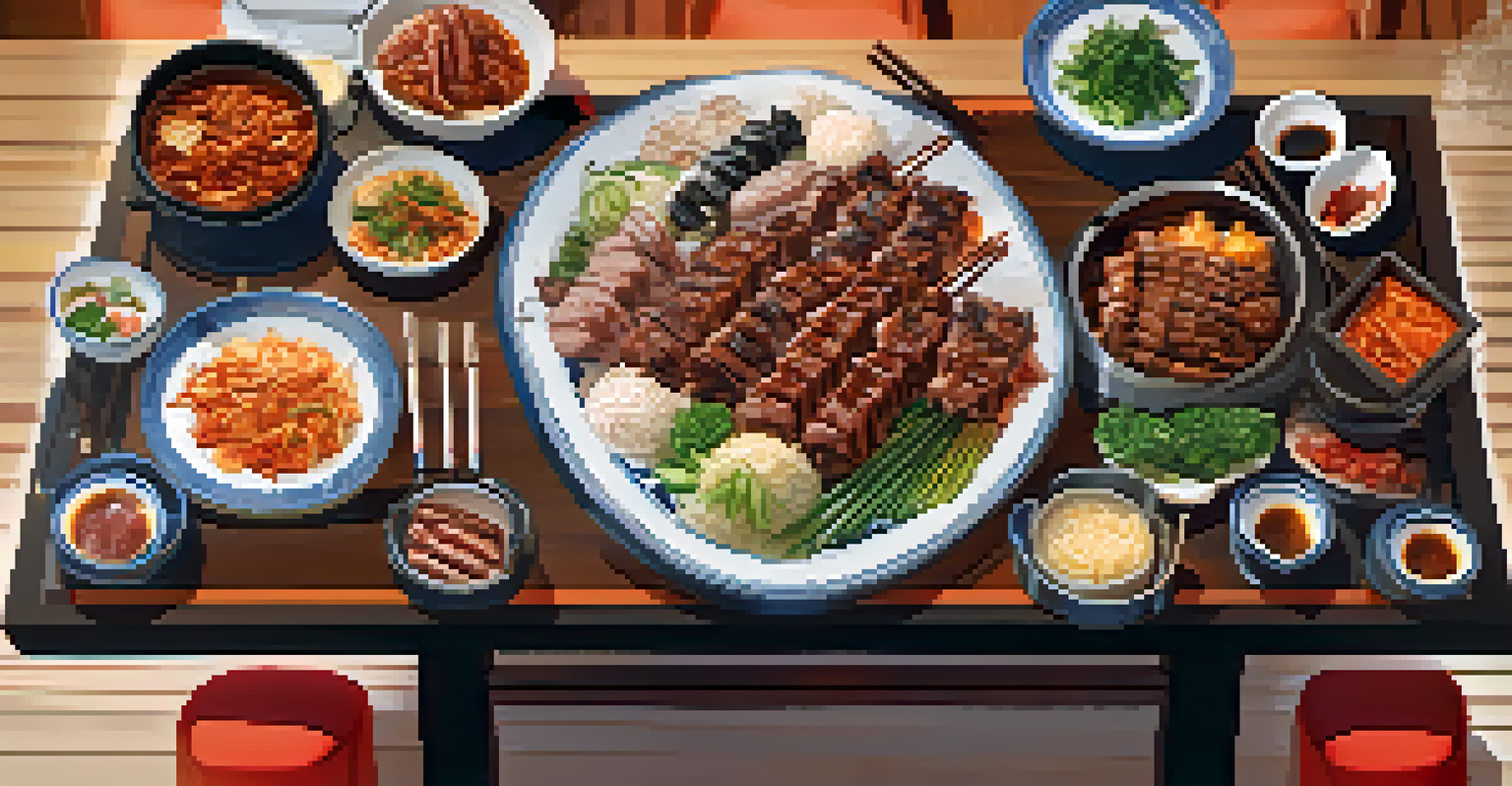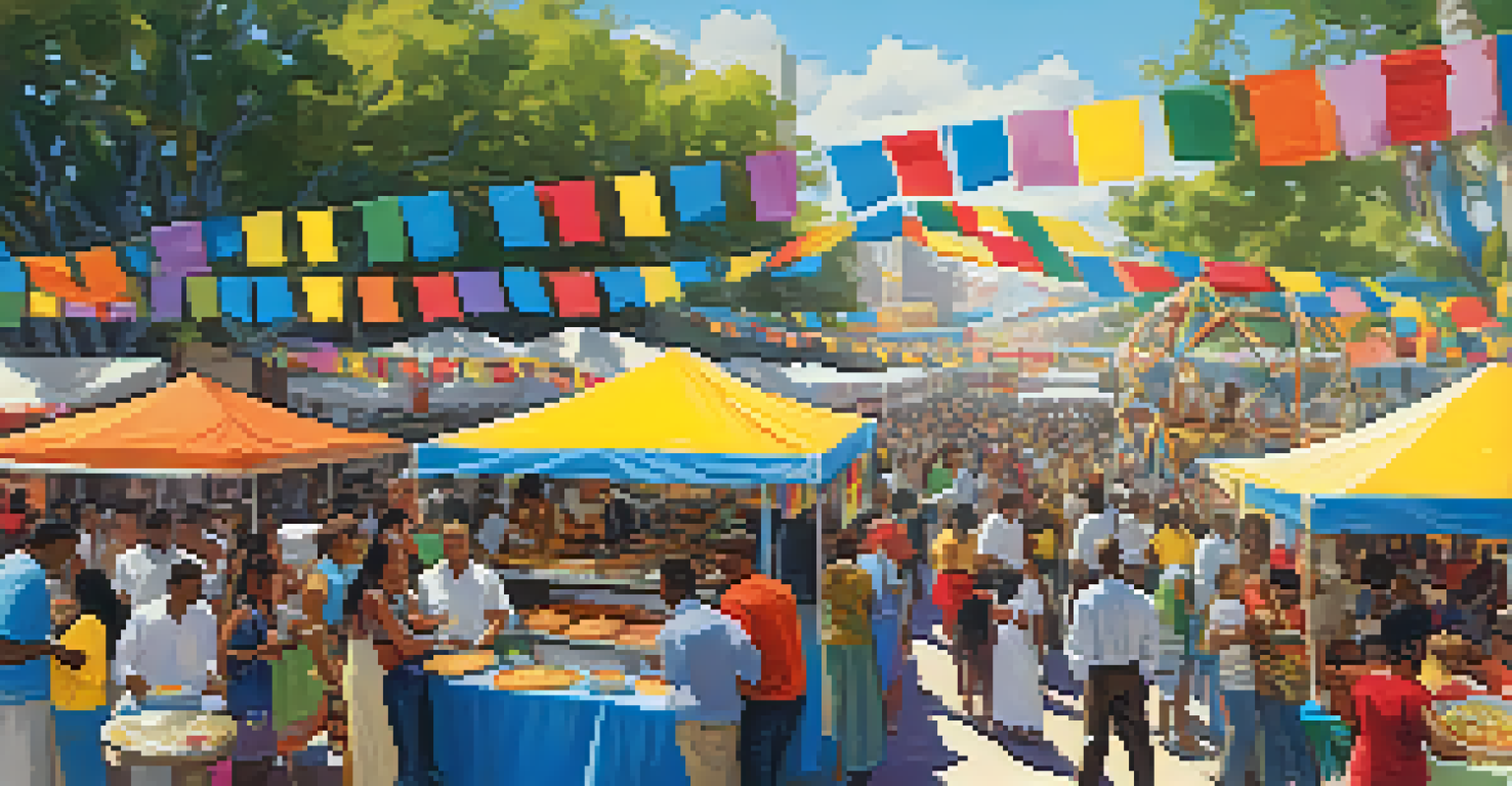The Role of Immigrant Communities in Shaping LA Cuisine

A Melting Pot: The Diverse Influences on LA Cuisine
Los Angeles is often referred to as a melting pot, and for good reason. The city’s culinary scene reflects a rich tapestry of cultures, thanks to its diverse immigrant communities. Each group brings unique flavors, cooking techniques, and traditions, contributing to an ever-evolving food landscape.
Food is a central part of the cultural identity of immigrants, and sharing that food is a way of sharing their stories.
For example, the influx of Mexican immigrants has introduced tacos, tamales, and enchiladas, which are now staples in LA. Similarly, the influence of Asian communities has popularized dishes like ramen and dim sum, creating a fusion that defines the city's food culture. This melding of flavors not only diversifies the cuisine but also fosters a sense of community among different cultures.
As these immigrant communities establish roots, they often share their culinary heritage with the broader population, leading to new food trends and innovations. This dynamic exchange of ideas and flavors is what keeps LA's food scene fresh and exciting, making it a vibrant destination for food lovers.
Street Food: A Taste of Home on Every Corner
One of the most authentic ways immigrant communities share their culture is through street food. In Los Angeles, food trucks and stalls serve up traditional dishes that remind many of their homeland. These vendors not only provide delicious meals but also a glimpse into the everyday lives and stories of the people behind the food.

For instance, the taco trucks scattered across the city highlight the culinary skills of Mexican immigrants, offering everything from classic carne asada to innovative vegan options. Similarly, the presence of pupusa stands showcases the influence of Salvadoran culture, bringing people together over a shared love for food. This accessibility makes it easy for anyone to experience diverse cuisines without stepping into a restaurant.
LA's Cuisine: A Cultural Mosaic
Los Angeles' culinary scene reflects a rich diversity of immigrant cultures that contribute unique flavors and traditions.
Street food in LA is more than just a meal; it's an experience steeped in culture and community. It serves as a reminder of the rich narratives and traditions that immigrant communities contribute to the city, making each bite a journey through different cultures.
Restaurants: Celebrating Heritage through Culinary Arts
Restaurants play a crucial role in showcasing the culinary contributions of immigrant communities. Many establishments serve as cultural ambassadors, offering menus that reflect their owners' backgrounds. From family recipes passed down through generations to contemporary takes on traditional dishes, these restaurants celebrate their heritage while inviting others to explore new flavors.
The best part about fusion cuisine is that it allows us to break down barriers and celebrate the diversity of our world through food.
Take, for example, the rise of Korean BBQ in LA. It has become a beloved dining experience that not only highlights Korean culinary traditions but also encourages communal dining—a hallmark of Korean culture. As diners share a grill at their table, they partake in a cultural experience that goes beyond just eating.
Moreover, these restaurants often become gathering places for cultural celebrations and events, further enriching the community. By dining at these establishments, patrons not only enjoy delicious food but also support the cultural narratives that immigrant communities bring to the vibrant fabric of LA.
Fusion Cuisine: The Art of Culinary Innovation
In Los Angeles, fusion cuisine has taken center stage, thanks to the city’s diverse immigrant populations. Chefs are experimenting with flavors and techniques from different cultures, creating innovative dishes that reflect the multicultural spirit of the city. This culinary creativity not only excites the palate but also tells stories of blending traditions.
For example, you might find sushi burritos, a fusion of Japanese and Mexican cuisine, or kimchi tacos that combine Korean and Mexican flavors. These dishes exemplify how immigrant chefs are pushing the boundaries of traditional cooking, resulting in exciting new culinary experiences. It’s a delightful way for cultures to intersect and for diners to enjoy a taste of multiple heritages in one bite.
Street Food: Authentic Community Taste
Street food in LA serves as a vibrant expression of immigrant heritage, offering accessible and traditional dishes that connect people.
As this trend grows, it highlights the importance of collaboration and understanding between cultures. Fusion cuisine is a testament to how food can bridge gaps and foster relationships, making it a vital part of LA’s culinary identity.
Cultural Festivals: Celebrating Culinary Traditions
Cultural festivals in Los Angeles serve as vibrant showcases for the culinary traditions of immigrant communities. These events bring people together to celebrate their heritage through food, music, and art, creating a festive atmosphere filled with diverse flavors. Festivals like the LA Food and Wine Festival or the Nisei Week highlight the contributions of various immigrant groups, making it a feast for the senses.
During these celebrations, attendees can sample an array of dishes, from traditional foods to modern interpretations, providing a unique opportunity to explore different cultures. For example, you might find a booth featuring Ethiopian injera or a stand serving Filipino adobo, allowing visitors to experience the richness of these cuisines firsthand.
Moreover, these festivals foster a sense of belonging and pride among immigrant communities while inviting everyone to partake in the celebration. They underscore the idea that food is not just for sustenance but also a means of sharing stories and building connections across cultures.
The Evolution of Ingredients: New Flavors in Local Markets
The influx of immigrant communities has also transformed local markets in Los Angeles. These markets often feature a wide variety of ingredients that reflect the culinary diversity of the city. From fresh produce to specialty spices, they provide access to authentic ingredients that many traditional dishes require, making them essential for both home cooks and chefs alike.
For example, you can find fresh masa for making tamales or unique herbs like epazote that are staples in Mexican cooking. Similarly, Asian markets offer ingredients such as bok choy and lemongrass, opening the door for culinary experimentation at home. These markets not only cater to specific communities but also educate others about different cuisines.
Fusion Cuisine: Innovation on a Plate
Fusion cuisine in LA showcases the creative blending of different culinary traditions, resulting in innovative dishes that celebrate multiculturalism.
As more people shop at these markets, they introduce new flavors into their cooking, further blending culinary traditions. This evolution of ingredients contributes to a richer food culture in LA, encouraging creativity and understanding among diverse communities.
The Future of LA Cuisine: Embracing Diversity and Innovation
Looking ahead, the future of LA cuisine appears bright, with immigrant communities continuing to play a pivotal role in its evolution. As new generations of chefs emerge, they bring fresh perspectives and innovative ideas that celebrate their cultural backgrounds while embracing modern trends. This ongoing transformation ensures that the culinary scene remains dynamic and exciting.
Moreover, as awareness around food sustainability and health grows, immigrant communities are adapting traditional recipes to meet contemporary needs. For instance, there’s a rising interest in plant-based versions of classic dishes, making them more accessible to a wider audience while honoring their roots.

Ultimately, the journey of LA cuisine is one of resilience, creativity, and connection. By embracing the contributions of immigrant communities, the city not only preserves its rich culinary heritage but also paves the way for a future where diverse flavors continue to thrive and inspire.